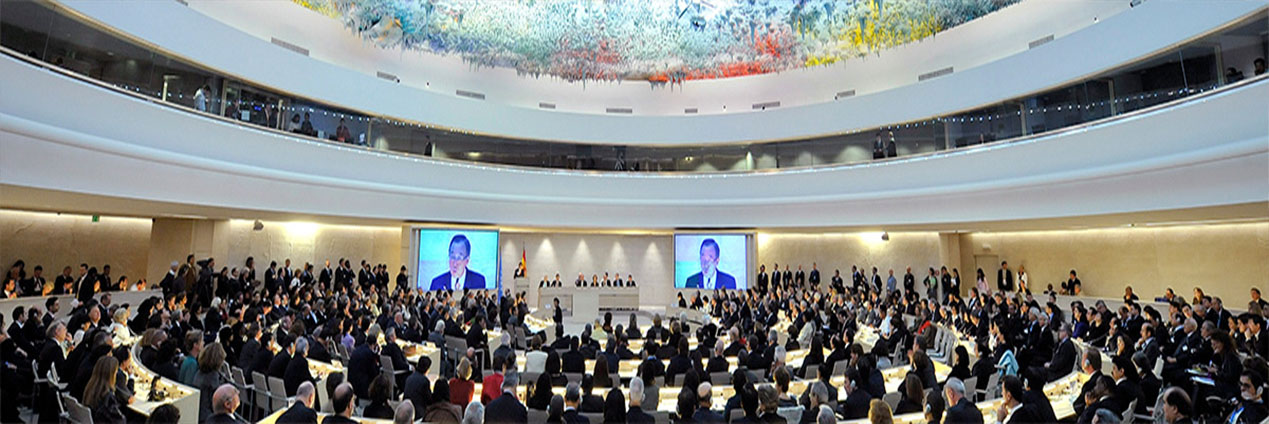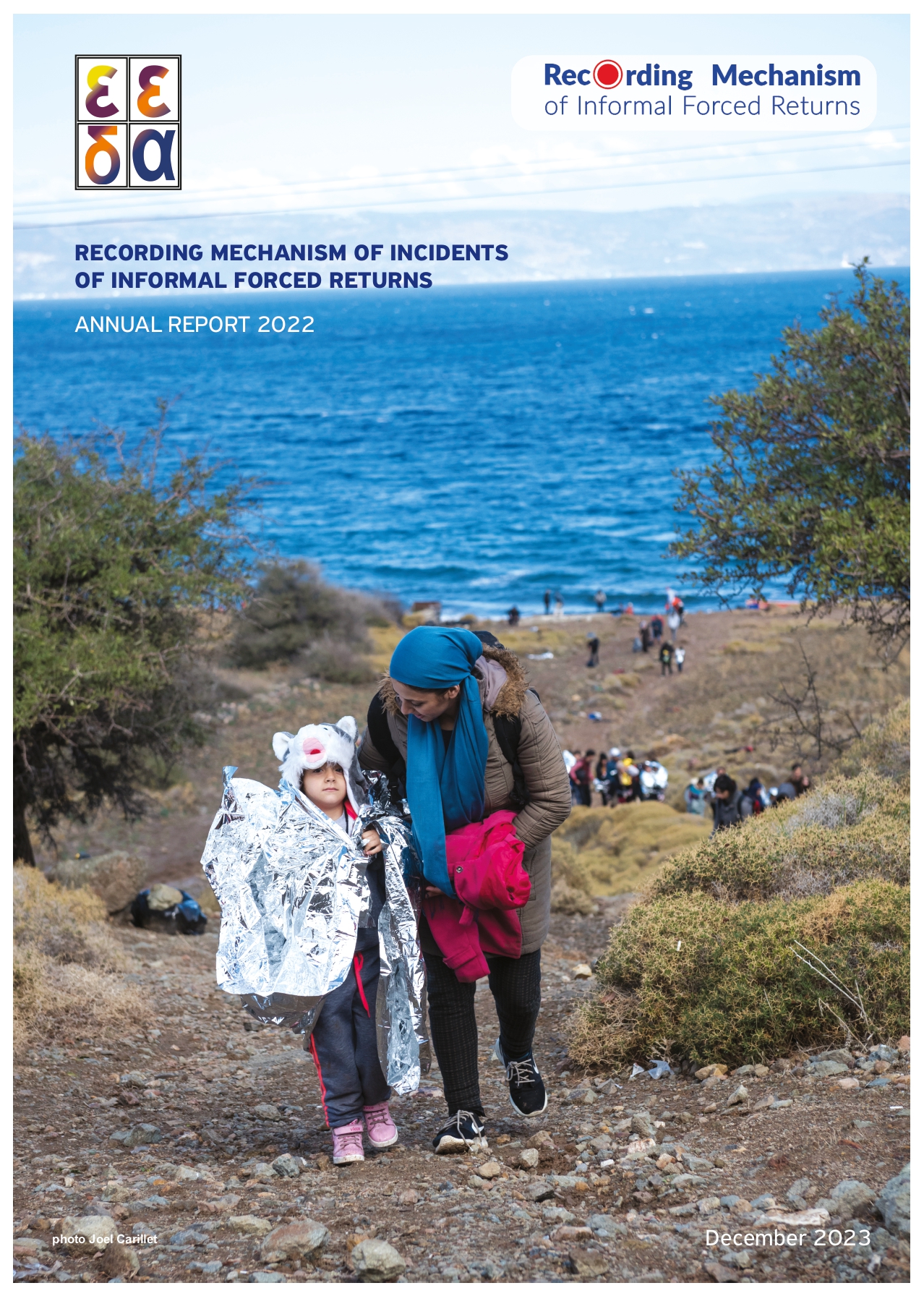Publication of the Annual Report 2022 of the Recording Mechanism of Incidents of Informal Forced Returns

Recording Mechanism of Incidents of Informal Forced Returns
PRESS RELEASE
Publication of the Annual Report 2022
The Greek State must ensure strict compliance with the principle of non-refoulement and access of the alleged victims to Justice.
Athens, 24 January 2023
On December 13th 2023, the Recording Mechanism of Incidents of Informal Forced Returns published its Annual Report 2022, presenting detailed quantitative and qualitative data on incidents of informal forced returns recorded during 2022. The term "informal forced returns" encompasses alleged pushbacks of asylum seekers and refugees, as well as any other form of forced removal of third-country nationals from Greek territory conducted irregularly and summarily, without following legal procedures for the removal of third-country nationals.
Between February 2022 and December 2022, the Recording Mechanism recorded testimonies through personal interviews with the alleged victims, about 50 incidents of informal forced returns, which according to the alleged victims occurred in the period between April 2020 and October 2022. According to the testimonies, the total number of the alleged victims involved in these incidents, amounts to a minimum of 2.157 persons, including 214 women and 205 children, as well as persons with special needs, like persons facing medical problems, persons with disabilities, elderly people etc.
The countries of origin of the majority of the alleged victims are listed among the countries whose nationals are granted international protection status at a significant rate, as derived from national and EU data sources for the reporting period. Among the alleged victims, there are five (5) persons who were recognised refugees in Greece, and five (5) asylum seekers who were registered asylum applicants at the competent Greek Authorities and their applications were pending.
In their testimonies, the alleged victims have described acts which are connected to extremely serious infringements of the principle of non-refoulement and the right of persons to seek asylum, as set out in the 1951 Convention Relating to the Status of Refugees, as well as non-compliance with the prohibition of inhuman or degrading treatment and the right of freedom, as set out in the European Convention of Human Rights (ECHR) which constitute criminal offences under Greek Law. The alleged victims have reported that they had been subjected to physical violence, verbal abuse and threats to their lives and physical integrity often at gunpoint, sexual harassment, degrading treatment, deprivation of personal belongings and identity documents, informal detention in places under humiliating conditions, separation of family members, and, in some cases, even losses of human lives.
In the testimonies recorded by the Recording Mechanism, it is reported that the operations of informal forced returns were conducted by perpetrators in uniform as well as individuals wearing civilian clothing. Moreover, some testimonies reported that during the physical removal from the Greek territory, third-country nationals were involved speaking languages of the alleged victims.
The Annual Report 2022 presents analytical data relating to the profile of the alleged victims (countries of origin, ages, gender, vulnerabilities, legal status in Greece etc.) the identity of the alleged perpetrators (persons in and out of uniform, members of security forces and services, distinctive insignias, equipment used etc.) how they operate, and the means they use to implement an operation of informal forced return. Analytical quantitative findings on the modus operandi are also be included in the Annual Report 2022. Anonymised excerpts by original testimonies are being set out in the annexes of the Report.
Additionally, the Report includes detailed recommendations to the Greek Authorities, as, among others, to investigate in an independent and efficient manner all complaints lodged by the alleged victims involved in incidents of informal forced returns and other instances of serious human rights violations at the borders, ensure that perpetrators of such illegal actions are being brought before the Judicial Authorities, provide safeguards that all State bodies respect strictly the principle of non-refoulement, provide safeguards that all asylum seekers in the Greek territory have access to asylum procedures and are protected against pushbacks and every form of informal forced returns.
A summary of these data was presented by the Recording Mechanism in the presentation of the Interim Report on 24 January 2023.
You can access the Annual Report 2022 of the Recording Mechanism by clicking here.
The Recording Mechanism will publish its next Annual Report for 2023 within the first four months of 2024.
The Recording Mechanism, established by the Greek National Commission for Human Rights, aims to provide an objective tool for recording testimonies of incidents of informal forced returns from Greek territory. Civil society organizations, working in the field and offering services to third-country citizens, participate in the Recording Mechanism. The Representation of UNHCR in Greece provides technical support to the Recording Mechanism and expertise on issues of refugee protection.
The Recording Mechanism does not engage in any way with legal proceedings that may have been initiated either by the alleged victims and their legal representatives or by the prosecuting authorities. However, by identifying alleged victims and securing the recording of their testimonies, the Recording Mechanism encourages victims to approach the competent authorities.
The Greek National Commission for Human Rights (GNCHR) is the National Human Rights Institution (NHRI) in Greece and the independent advisory body to the Greek State for the promotion and protection of human rights. It has been established in accordance with the Paris Principles adopted by the United Nations (General Assembly Resolution A/RES/48/134, 20.12.1993, “National Institutions for the promotion and protection of human rights” NHRIs), and its institutional mission according to its founding legislation includes, among others, the constant monitoring of developments regarding human rights protection, the public information, and the promotion of relevant research.
For more information please contact:
Ilias I. Tsampardoukas, Supervisor of the Recording Mechanism of Incidents of Informal Forced Returns, (+30) 210 723 3224, This email address is being protected from spambots. You need JavaScript enabled to view it.
For the press release in pdf format click here


